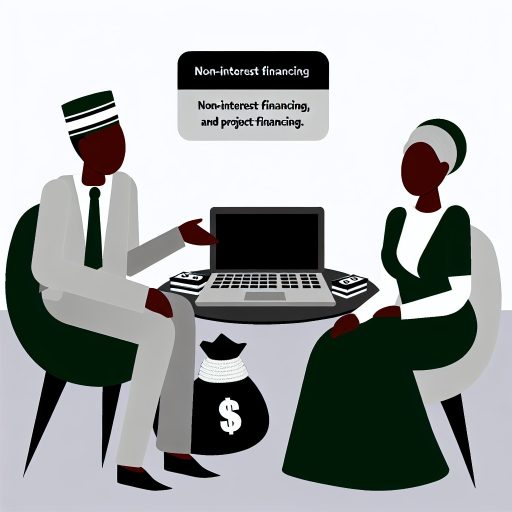Introduction to the Role of Accountants in Nigeria’s Financial Ecosystem
Accountants play a crucial role in Nigeria’s financial ecosystem.
They are responsible for maintaining financial integrity across various sectors.
Moreover, their expertise enhances transparency in financial reporting.
In Nigeria, accountants ensure compliance with local and international accounting standards.
Financial Reporting and Analysis
One of the primary responsibilities of accountants is financial reporting.
They prepare accurate and timely financial statements for stakeholders.
This process involves analyzing financial data and recognizing trends.
Additionally, stakeholders rely on these reports for informed decision-making.
Tax Compliance and Advisory Services
Accountants in Nigeria also provide vital tax compliance services.
They help businesses understand and navigate complex tax regulations.
Furthermore, accountants offer strategic tax planning to minimize liabilities.
Consequently, their advice greatly influences a company’s financial health.
Internal Control and Risk Management
Accountants are essential in establishing internal controls within organizations.
These controls mitigate risks associated with financial mismanagement.
Furthermore, they conduct audits to ensure compliance with accounting policies.
Such practices enhance the reliability of financial information.
Business Advisory and Strategic Planning
Beyond traditional roles, accountants serve as business advisors.
They provide insights that aid in strategic planning and business growth.
This includes evaluating potential investments and expansion opportunities.
They also facilitate budgeting processes and performance evaluations.
Contribution to Economic Development
The work of accountants impacts Nigeria’s broader economic development.
They foster a culture of accountability and good governance.
As a result, this boosts investor confidence in the Nigerian market.
Moreover, their role in financial education contributes to community development.
Overview of the Accounting Profession in Nigeria
History of Accounting in Nigeria
The history of accounting in Nigeria dates back to the pre-colonial era.
During this time, traditional accounting practices emerged among various ethnic groups.
These practices focused on record-keeping and trade transactions.
Colonial rule introduced formal accounting systems in the early 20th century.
British accounting principles influenced the development of the profession.
In 1965, Nigeria established the Institute of Chartered Accountants.
This institution played a crucial role in standardizing accounting practices.
By the 1980s, Nigeria’s accounting landscape began to evolve significantly.
The Evolution of the Profession
Accountants in Nigeria have adopted international standards over the years.
In 2003, Nigeria aligned its accounting standards with IFRS.
This alignment improved the transparency of financial reporting.
The adoption of technology further transformed the profession.
Accountants now use sophisticated software for bookkeeping and auditing.
This shift has enhanced accuracy and efficiency in financial management.
Moreover, the demand for forensic accounting has increased recently.
Businesses now seek to prevent fraud and ensure compliance.
The Current State of the Accounting Profession
Today, accounting is a respected profession in Nigeria.
Many educational institutions offer specialized accounting programs.
These programs equip students with the skills needed for modern challenges.
Furthermore, accountants play vital roles in both public and private sectors.
They contribute to strategic decision-making and financial planning.
Additionally, continued professional development is critical for accountants.
Organizations frequently host seminars and workshops to enhance skills.
The profession recognizes the need for ethical standards and integrity.
Accountants must navigate the complexities of financial regulations.
The accounting profession in Nigeria continues to thrive.
Key Responsibilities of Accountants in Financial Reporting and Compliance
Ensuring Accurate Financial Reporting
Accountants play a vital role in ensuring accurate financial reporting.
They prepare financial statements that reflect a company’s true financial position.
This includes balance sheets, income statements, and cash flow statements.
Furthermore, accountants must adhere to local and international reporting standards.
Compliance with standards like IFRS is crucial for transparency.
Transparency builds trust with stakeholders and investors alike.
Compliance with Tax Regulations
Accountants are responsible for ensuring compliance with tax regulations.
They prepare tax returns and ensure timely filing to avoid penalties.
Accountants also stay updated with current tax laws and regulations.
Understanding these laws is essential for legitimate tax planning.
Moreover, they provide advice on tax incentives and benefits.
Conducting Internal Audits
Another critical responsibility is conducting internal audits.
Accountants assess the accuracy of records and compliance with regulations.
These audits identify discrepancies that require further investigation.
By doing so, accountants prevent financial mismanagement.
They contribute to improving internal controls and operational efficiency.
Providing Financial Advice
In addition to reporting, accountants provide financial advice.
They analyze financial data to guide business decisions effectively.
This guidance includes budgeting, forecasting, and cost management strategies.
Accountants also help businesses develop financial goals and objectives.
Sound financial advice supports long-term growth and stability.
Managing Financial Records
Accountants manage and maintain comprehensive financial records.
They ensure that all documents are accurate and easily accessible.
Good recordkeeping practices support transparency and accountability.
Furthermore, this organization aids in efficient financial analysis.
Accountants oversee the proper classification of financial transactions.
Uncover the Details: TAJBank Limited: Revolutionizing Non-Interest Banking in Abuja with Trust and Innovation
The Importance of Accountants in Corporate Governance and Ethical Standards
Role of Accountants in Corporate Governance
Accountants play a crucial role in corporate governance in Nigeria.
They ensure transparency in financial reporting and accountability.
This responsibility fosters trust among investors and stakeholders.
Furthermore, accountants provide a critical function in risk management.
They assess financial risks and implement controls to mitigate them.
Ultimately, their role affects the sustainability of businesses.
Upholding Ethical Standards
Ethics are vital in the accounting profession in Nigeria.
Accountants are tasked with maintaining high ethical standards.
They adhere to guidelines set by professional organizations.
By following ethical practices, they promote integrity in financial dealings.
Publish Your Professional Profile, Business or Brand
Showcase your expertise, gain trust, and boost visibility instantly on Professions.ng.
Publish NowMoreover, they serve as custodians of public trust.
Ethical accounting reduces the likelihood of fraud and malpractice.
Impact on Stakeholders
Accountants’ decisions impact various stakeholders directly.
Shareholders rely on accurate financial statements for informed decisions.
Employees benefit from a well-governed company that can offer job security.
Additionally, suppliers advance their interests based on reliable information.
Overall, the role of accountants is central to stakeholder confidence.
Contributions to Regulatory Compliance
Accountants play a significant role in ensuring regulatory compliance.
They help organizations adhere to laws and regulations governing accounting.
Additionally, they assist in preparing for audits by regulatory bodies.
Such compliance protects businesses from legal repercussions.
Consequently, maintaining compliance enhances the credibility of financial reports.
Significance of Accountants to Corporate Stability
In summary, accountants are integral to corporate governance.
They uphold ethical standards and boost stakeholder confidence.
Their contributions to regulatory compliance cannot be overstated.
Indeed, accountants significantly bolster the financial ecosystem in Nigeria.
Delve into the Subject: Why Financial Analysts are in High Demand in Nigeria’s Economy
The Role of Accountants in Tax Planning and Regulatory Adherence
Understanding Tax Planning
Tax planning is essential for businesses in Nigeria.
Accountants play a crucial role in this process.
They help organizations minimize tax liabilities efficiently.
Accountants analyze financial statements for tax optimization.
They ensure compliance with the evolving tax laws.
Strategies for Effective Tax Planning
Several strategies enhance tax planning effectiveness.
- Assessing eligibility for tax incentives is vital.
- Utilizing deductions can significantly reduce taxable income.
- Understanding credits can lower tax obligations substantially.
- Implementing tax-efficient investment strategies is beneficial.
Each of these strategies requires precise execution.
Ensuring Regulatory Compliance
Regulatory compliance protects businesses from legal issues.
Accountants ensure adherence to the Financial Reporting Council standards.
They keep track of regulatory changes in Nigeria.
This vigilance helps organizations avoid penalties significantly.
Additionally, accountants prepare accurate financial reports.
The Importance of Regular Audits
Conducting regular audits enhances transparency.
Audits also help identify potential compliance issues early.
Accountants offer valuable insights during these audits.
These insights guide management in making informed decisions.
Thus, regular audits contribute to sound financial health.
Collaboration with Other Professionals
Accountants often collaborate with legal and financial advisors.
This collaboration enhances overall tax strategy effectiveness.
Working together ensures a comprehensive understanding of laws.
Accountants’ expertise complements other professionals’ insights.
Ultimately, this teamwork leads to robust compliance strategies.
Continual Education and Professional Development
The financial landscape constantly evolves in Nigeria.
Accountants must pursue ongoing education to stay relevant.
Attending workshops and seminars is a great approach.
They can also participate in professional bodies and forums.
Such activities enhance their knowledge and skills significantly.
You Might Also Like: The Roadmap to Becoming a Wealth Management Expert in Nigeria

Impact of Technology on Accounting Practices in Nigeria
Technology has revolutionized accounting practices in Nigeria.
Manual bookkeeping is gradually giving way to digital methods.
This shift enhances accuracy and efficiency in financial reporting.
Transformation of Traditional Methods
Nigeria has witnessed increased adoption of accounting software.
Programs like QuickBooks and Sage are popular among businesses.
These tools simplify complex accounting tasks significantly.
Moreover, they enable real-time financial tracking and analysis.
Adoption of Accounting Software
Cloud computing offers numerous advantages for accountants in Nigeria.
It allows for secure data storage and easy accessibility.
Accountants can access financial data anytime and anywhere.
Additionally, cloud-based systems often provide automatic updates.
Cloud Computing Advantages
Automation is transforming various accounting processes.
Tasks such as invoicing and payroll can now be automated.
This change saves time and reduces potential errors.
Consequently, accountants can focus on more strategic activities.
Increased Efficiency through Automation
Big data analytics is becoming crucial in accounting practices.
Accountants analyze large volumes of financial data efficiently.
This analysis helps firms make informed business decisions.
Furthermore, it identifies trends and predicts future financial outcomes.
Big Data and Analytics
Technology improves compliance with financial regulations.
Accountants utilize software to ensure accurate reporting.
This visibility increases overall transparency within organizations.
Secure platforms protect sensitive financial information effectively.
Enhanced Compliance and Security
As technology evolves, accountants require ongoing education.
Training programs help them stay updated on new tools.
Furthermore, this knowledge enhances their adaptability to changes.
It fosters a culture of continuous improvement within the profession.
Education and Training Needs
Gain More Insights: How to Become a Successful Investment Banker in Nigeria’s Banking Sector
Challenges Faced by Accountants in Nigeria’s Financial Landscape
Regulatory Complexity
Accountants in Nigeria navigate a complex web of regulations.
This maze includes both local and international standards.
Consequently, maintaining compliance can be overwhelming.
Moreover, evolving regulations create additional challenges.
These changes often require continuous professional development.
Access to Technology
The technological landscape in Nigeria presents obstacles for accountants.
Limited access to modern accounting software hampers efficiency.
Additionally, slow internet connectivity affects productivity.
Many firms lag in adopting digital tools.
As a result, traditional practices dominate the industry.
Professional Development Opportunities
Accountants in Nigeria face challenges in professional growth.
Limited access to training programs can hinder advancement.
Thus, many professionals lack exposure to global best practices.
Networking opportunities are often restricted as well.
Publish Your Professional Profile, Business or Brand
Showcase your expertise, gain trust, and boost visibility instantly on Professions.ng.
Publish NowThis isolation can stifle innovation within the profession.
Economic Instability
Nigeria’s economic landscape impacts accountants significantly.
High inflation rates disrupt financial planning and forecasting.
Additionally, currency fluctuations can complicate financial reporting.
Accountants must adapt rapidly to these changing conditions.
Client trust can waver during periods of economic uncertainty.
Ethical Challenges
Ethical dilemmas are prevalent in Nigeria’s accounting environment.
Many accountants face pressure to compromise their integrity.
Instances of corruption can tempt professionals into unethical practices.
As a result, maintaining ethical standards is a constant struggle.
Accountants must navigate these challenges while upholding their responsibility.
Future Trends and the Evolving Role of Accountants in Nigeria’s Economy
Technological Advancements
Technology is changing the landscape of accounting in Nigeria.
Accountants must adapt to new software and tools regularly.
Cloud computing enhances accessibility and collaboration among accountants.
Data analytics is becoming crucial for informed financial decision-making.
Furthermore, artificial intelligence can automate repetitive tasks.
Regulatory Changes
The Nigerian accounting environment is influenced by evolving regulations.
Accountants need to stay updated on changes in financial regulations.
This compliance ensures that businesses adhere to legal requirements.
Consequently, accountants play a pivotal role in risk management.
Sustainability Concerns
Sustainability is gaining traction in the accounting profession.
Businesses are increasingly focusing on sustainable practices.
Accountants can drive sustainability initiatives through accurate reporting.
Additionally, they can help organizations measure their environmental impact.
Global Integration
Nigeria’s economy is integrating more with the global market.
Accountants must understand international financial standards.
Global collaboration can drive growth and innovation in the accounting field.
Thus, accountants enhance their skills in international accounting practices.
Future Career Opportunities
The demand for skilled accountants in Nigeria is expected to grow.
Emerging sectors will require specialized accounting services.
Areas like forensic accounting and financial advisory are expanding.
Accountants should seek continuous education to remain competitive.
Enhanced Advisory Roles
Accountants are evolving into trusted advisors for businesses.
They provide insights that drive strategic planning and decision-making.
This shift enhances the value accountants bring to their clients.
Moreover, they can help businesses navigate financial uncertainties.
Additional Resources
Exploring Financial Management Practices of Small and Medium …




